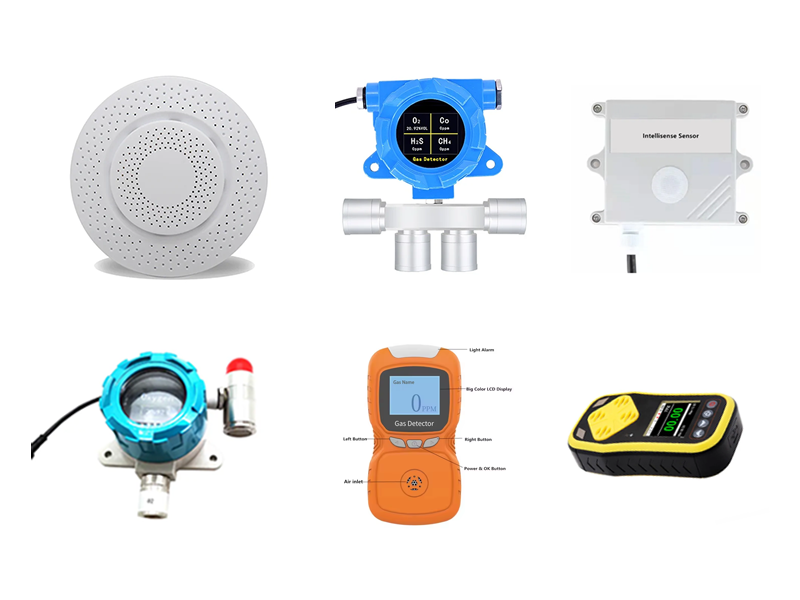London, UK – January 15, 2025 — The integration of advanced gas sensor technology is reshaping British agriculture, offering farmers innovative solutions to improve crop yields, livestock health, and environmental sustainability. As the UK grapples with the challenges of climate change, food security, and regulatory pressures, gas sensors are emerging as essential tools in modern farming practices.
Improving Air Quality Monitoring
One of the key applications of gas sensors in agriculture is the monitoring of air quality in and around livestock facilities. Sensors that detect ammonia, methane, and carbon dioxide levels are being deployed in barns and stables to provide real-time data on gas concentrations. High levels of ammonia, for instance, can adversely affect animal health and productivity; thus, early detection is crucial for maintaining optimal conditions.
“By utilizing gas sensors, we’ve significantly improved our ability to manage air quality within our facilities,” says Emma Thompson, a dairy farmer in Somerset. “The sensors alert us to any spikes in ammonia levels so we can take immediate action, ensuring a healthier environment for our cows and better milk production.”
Enhancing Soil Health and Crop Yields
Beyond livestock, gas sensors are also being used to monitor soil health. Sensors capable of measuring soil respiration rates help farmers understand how well their soil is functioning. By analyzing the gas emissions from the soil, farmers can gain insights into microbial activity and nutrient cycling, which are essential for promoting healthy crops.
“This technology has enabled us to optimize our fertilization strategies,” explains James Marshall, an arable farmer in East Anglia. “We can now apply fertilizers more accurately based on soil gas measurements, reducing waste and minimizing environmental impact while increasing our crop yields.”
Supporting Sustainable Practices
As pressure mounts on farmers to adopt more sustainable practices, gas sensors play a critical role in achieving these goals. For example, sensors that monitor greenhouse gas emissions can help farmers understand the carbon footprint of their operations. By identifying sources of emissions, farmers can implement targeted interventions to reduce their impact on the environment.
The rapid advancement of sensor technology has also led to the development of portable devices that can be easily used in the field. These handheld gas analyzers allow farmers to gather data quickly and efficiently, enabling timely decision-making to address environmental concerns.
Driving Innovation Through Research and Development
UK universities and research institutions are at the forefront of developing cutting-edge gas sensing technologies tailored for agriculture. Collaborations between academia and the agri-tech industry are fostering innovations that enhance sensor capabilities, such as improved sensitivity, accuracy, and affordability.
A recent initiative by the University of Reading, funded by the UK government’s Agri-Tech Catalyst program, focuses on improving precision agriculture through advanced sensing technologies. Researchers aim to create a network of sensors that provide comprehensive data across farming landscapes, allowing for more informed and sustainable farming practices.
Consumer Demand for Transparency and Sustainability
The growing consumer demand for sustainably-produced food is driving the adoption of gas sensors in agriculture. Retailers and consumers are increasingly looking for transparency in production methods, including the environmental impact of farming processes. Gas sensors help farmers demonstrate their commitment to sustainability by providing data that can be shared with stakeholders and consumers.
“Farmers who adopt these technologies can not only enhance their productivity but also build trust with consumers who are increasingly concerned about how their food is produced,” says Sarah Williams, director of the UK Agri-Tech organization.
The Future of Agriculture
As the agricultural sector continues to evolve, the role of gas sensors in improving operational efficiency and sustainability cannot be overstated. With ongoing investments in technology and research, the future of British agriculture looks increasingly bright.
Farmers are being encouraged to explore the benefits of gas sensor technology through workshops and information sessions organized by agricultural associations and universities. As more producers recognize the advantages of real-time monitoring and data-driven decision-making, gas sensors are set to become a staple in farms across the UK.
For more gas sensor information,
please contact Honde Technology Co., LTD.
Email: info@hondetech.com
Company website: www.hondetechco.com
Post time: Jan-17-2025


